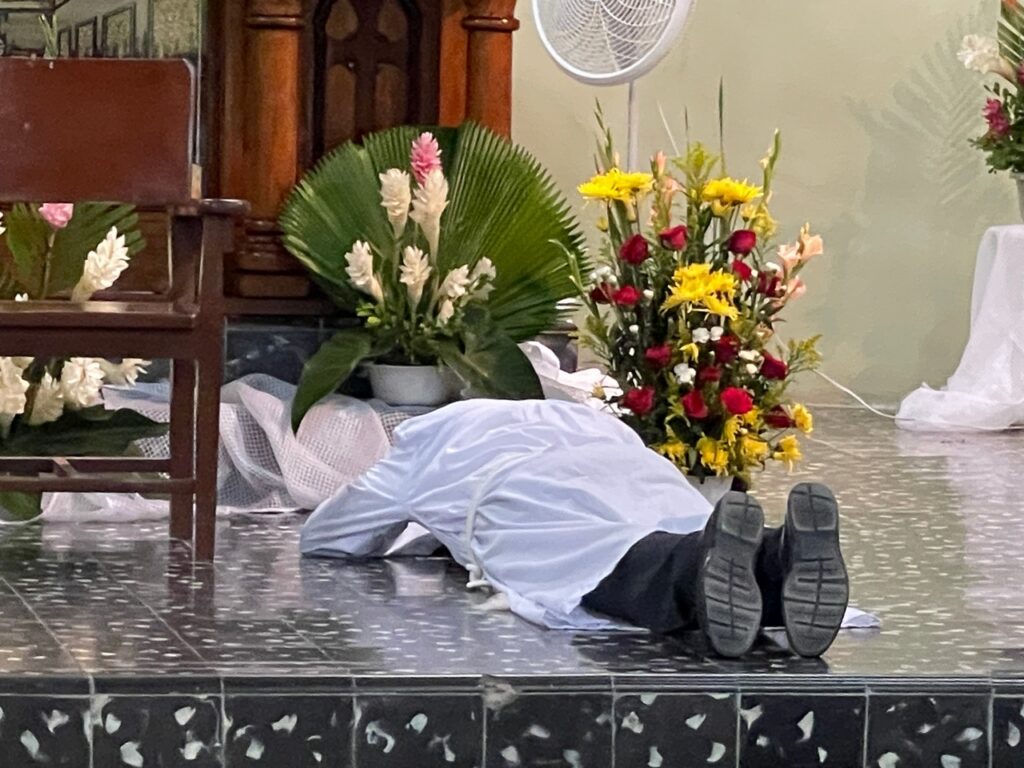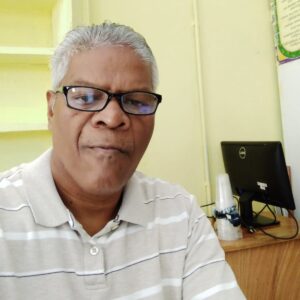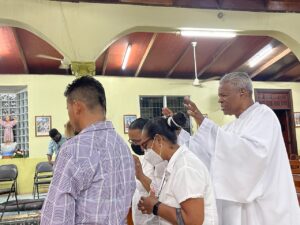
When Mr. and Mrs. Clarence Mangar gave birth to their son Lawrence on August 21, 1958, they never imagined he was destined for ministry in the Catholic Church. Lawrence Mangar grew up on a farm with his fifteen siblings in a poor but gorgeous tropical village in southern Belize known as Eldridgeville. 
His faith formation started early as he grew up in a very Catholic family which took part in many church activities. While his father was a convert to Catholicism, his mother was very active participating in a prayer group and the Rosary Solidarity. Lawrence attended Mass every Sunday and prayed the Rosary often. He attended Little Flower RC School, St. Peter Claver College, and St. John’s College Junior College. It seemed he was destined for Ministry as soon after, the village boy took the bold step to join the Society of Jesus. At such a young age it was very challenging for a third world youth in a first world environment.

He persevered and gained his bachelor’s degree in Philosophy from St. Louis University and master’s degree in Pastoral Studies from Loyola University, New Orleans. But those years in the Society of Jesus were not the easiest, and after ten years therein, he took a year off. Following much prayer, contemplation, and discernment, he felt at peace making the decision to leave. There were no regrets however, he felt filled with graces in the Ignatian “way of proceeding”.
These graces would strengthen his commitment to the Catholic Church, its teachings and tradition. His prayer life grew stronger, and he continued to attend Mass every morning while going to Confession regularly.
During this period of his journey, Lawrence met and married his beautiful wife Venice, and their union has been blessed with four wonderful children who also continue to practice the Catholic faith. He and his wife are deeply commitment to the Church and live out their faith by the following principle which they also teach their children, “Put God First”.

But the thought and desire of becoming a deacon had been burning in his heart for the last fifteen years. He explained, “the reason I wanted to become a deacon is that I felt it was a call from God, and I saw it as a new way of serving in the Church. I have been involved in church ministry for thirty years now. I have attended every religious workshop offered by the diocese and have also facilitated workshops for Lay Ministers. I see the need for this type of ministry, and I dare say it should have been in the making ten years ago.”
Formation for the diaconate requires a lot of commitment and sacrifice. It is not an easy journey, and the family must be just as committed. I am very excited and enthusiastic about serving God’s people in parish ministry and embark on this new stage of my journey with much zeal. I continue to pray for the grace each day to always surrender to God’s will; and as for my family: well, here it is: “As for me and my household we will always serve the Lord.”
The word deacon derives from the Greek diakonia, meaning “service,” thereby indicating that a deacon is called like Christ to be a servant. The Order of Deacon has three essential functions: the proclamation of the Gospel, the service of the liturgy, and the administration of charitable works. In particular, the deacon may assist the bishop and the priests in a variety of liturgical functions: Deacons may baptize, witness the exchange of vows, and bless marriages, distribute Holy Communion, impart benediction with the Blessed Sacrament, bring Viaticum to the dying, read Sacred Scripture to the faithful and especially proclaim the Gospel, preach, officiate at funerals and burials, and administer the sacramentals. They should also dedicate themselves to other charitable works, particularly within the parish community. (Confer the Catechism, No. 1569-70, and the Dogmatic Constitution on the Church, No 29).
(Photos courtesy Lawrence Mangar and Marylee Harrison)
